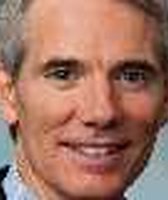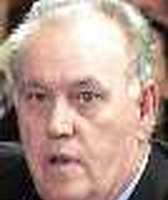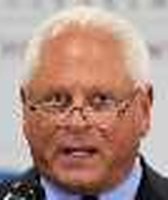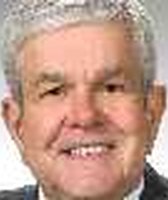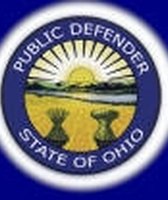Get PolitiFact in your inbox.

The United States and Canada have long been close allies. But does Sen. Ted Cruz' birth in the nation to the north disqualify him as a presidential candidate?
Cleveland-based PolitiFact Ohio has the distinction of being the closest PolitiFact unit to Canada, which might explain why we received several email and Twitter messages about Ted Cruz -- the Republican junior senator from Texas who is "considering a presidential run," according to friends and confidants quoted by the conservative blog National Review Online.
"Please tell Ted Cruz he can't be president," said an email to us. "He was born in Canada!"
We have no interest in another "birther" controversy, but we were curious for more information.
The basic biography: Cruz was born in 1970 in Calgary, Alberta, while his parents were working there.
His Cuban-born father, who is now an American citizen, was not at the time. His mother was born in Delaware. The family returned to the United States when Cruz was 4.
The Constitution gives three eligibility requirements to be president: one must be 35 years of age, a resident "within the United States" for 14 years, and a "natural born Citizen," a term not defined in the Constitution.
That lack of precision has given rise to controversy and legal challenges, but has never resulted in a definitive determination by the U.S. Supreme Court.
For that reason, PolitiFact refrained from making a Truth-O-Meter ruling in a May 2008 article that looked at the question of presidential eligibility for someone not physically born in the United States. The question had been raised about John McCain, who was born in the Panama Canal Zone when his father was stationed there in the U.S. Navy.
The issue was not likely to come before the high court, the article noted, and most legal scholars said McCain would have little to worry about if it did. It also noted that McCain’s campaign had commissioned a bipartisan duo of legal scholars to investigate the issue, and they concluded his status as a natural-born citizen was not in question.
Still as it was then, the issue remains rooted in legal opinions, and we make no ruling here either. But we can offer more support for the argument that McCain and Cruz are "natural born citizens," thanks to a more recent report on presidential qualifications by the Congressional Research Service and a nicely sourced posting by associate editor David A. Graham of The Atlantic.
CRS says: "The weight of legal and historical authority indicates that the term 'natural born' citizen would mean a person who is entitled to U.S. citizenship 'by birth' or 'at birth,' either by being born 'in' the United States and under its jurisdiction, even those born to alien parents; by being born abroad to U.S. citizen-parents; or by being born in other situations meeting legal requirements for U.S. citizenship 'at birth.'"
There is no requirement of two "citizen-parents," CRS found.
The CRS report took note of a federal court decision by the Northern District of California, which said that McCain would qualify as a citizen "at birth," and thus would be considered a "natural born" citizen, since he was born outside the United States to citizen parents.
The CRS did not look specifically at Cruz, and we can’t ask it to comment on him. The service works exclusively for Congress.
But Cruz, by being entitled to citizenship at birth because his mother was a U.S. citizen and by being in the U.S. for more than 14 years, would seem to qualify as a "natural born citizen" under the definition in the report.
When discussing McCain, the CRS report draws on immigration law and says: "The uncertainty concerning the meaning of the natural-born qualification in the Constitution has provoked discussion from time to time, particularly when the possible presidential candidacy of citizens born abroad was under consideration. There has never been any authoritative adjudication. It is possible that none may ever develop. However, there is substantial basis for concluding that the constitutional reference to a natural-born citizen includes every person who was born a citizen, including native-born citizens and citizens by descent."
So legally, the question is unsettled. Perhaps it will be if Cruz ever becomes a presidential contender.
Our Sources
Congressional Research Service, "Qualifications for President and the 'Natural Born' Citizenship Eligibility Requirement," Nov. 14, 2011
National Review Online, "Ted Cruz for President," May 1, 2013
U.S. Congress Biographical Directory, Ted Cruz
Sen. Ted Cruz, Official biography
New York Times, "A Test for the Tea Party in Texas Senate Race," Nov. 17, 2011
The Atlantic, "Yes, Ted Cruz Can Be Born in Canada and Still Become President of the U.S.," May 1, 2013
PolitiFact.com, "Was McCain Born in the USA?," May 12, 2008


